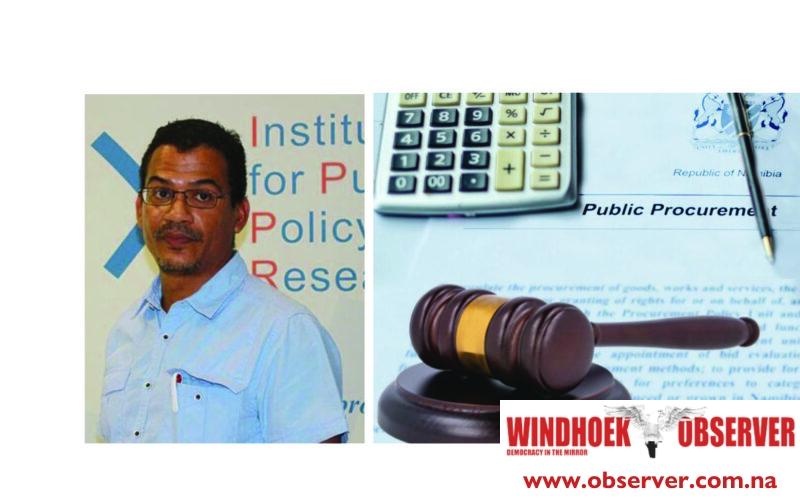Justicia Shipena
The Institute for Public Policy Research (IPPR) says the country’s public procurement system is at risk of becoming a breeding ground for corruption and misuse of state resources if proposed legal changes expanding ministerial exemptions are passed.
According to IPPR research associate Frederico Links, the proposed Public Procurement Amendment Bill of 2025 could weaken transparency and accountability by allowing ministries to bypass open bidding processes and award contracts directly.
Last month, Jafet Nelongo, director for professionalisation and capacity strengthening in the Ministry of Finance, stated that the bill 2025 is expected to be tabled in parliament this month.
“The extensive use of exemptions to fast-track development delivery looms as a threat not only to the integrity of the procurement system but also to effective service delivery and public trust,” Links said in the latest Procurement Tracker Namibia report.
He warned that the amendments would grant the finance minister sweeping powers to issue procurement exemptions and create policy with little oversight.
“This effectively allows ministries to directly contract hundreds, if not thousands, of suppliers without open and fair bidding,” Links said.
He cautioned that political gain could easily exploit such unchecked discretion.
“Ministerial exemptions are fertile soil for conflicts of interest. The world abounds with examples of how these exemptions have been abused for political and corrupt purposes,” he said.
The IPPR report mentions a review called the methodology for assessing procurement systems (MAPS), which recommended that Namibia should only use exemptions in rare situations.
The review stressed that discretion to use non-competitive procurement should be exercised with caution and backed by strong safeguards.
However, the report found that Namibia’s procurement system is already struggling with non-compliance.
As of September 2025, only 49% of public entities had submitted their annual procurement plans for the 2025/26 financial year and just 3% met the legal deadline.
Links said these failures, combined with proposals for expanded exemptions, demonstrate a systemic weakness.
“It is an intrinsic admission that Namibia’s public procurement system is dysfunctional and ineffective as a result of how it has been implemented since 2017,” he said.
He further warned that relaxing procurement rules undermines the country’s commitments under the United Nations Convention against Corruption (UNCAC), which calls for transparent and competitive tendering.
“The use of a broad ministerial exemption runs counter to international best practice. Exemptions should be narrowly defined, tightly restricted, and used only in exceptional cases,” Links said.
He called on civil society and the media to closely monitor the government’s use of exemptions and push for reforms that strengthen rather than weaken transparency.
“If exemptions become the norm, we risk sliding back into a system defined by secrecy, waste, and politicised decision-making,” he said.
Links added that any meaningful reform must reinforce accountability and oversight.
“If government is serious about fighting corruption and improving service delivery, it must make procurement more open—not more opaque,” he said.
Last month, the Ministry of Health and Social Services announced that it has stopped using middlemen to buy medicines and clinical supplies.
The ministry now purchases directly from international manufacturers and wholesalers.
Health minister Esperance Luvindao at that time said the new approach is already saving money, with more than N$221 million saved in the first phase.
President Netumbo Nandi-Ndaitwah recently backed the move during Swapo’s 2025 election campaign.
She said the government does not oppose the use of middlemen, but it becomes a problem when prices are inflated and the nation ends up being overcharged.
Caption
Photo 1- Frederico Links
Photo 2 – IPPR raised concerns that the expanded use of procurement exemptions could undermine fair bidding and increase the risk of misuse of public funds.
- Photos: Contributed




